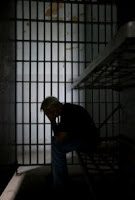Clearly, if you want to build somebody's self-esteem, it's not giving them money and helping them out through the next crisis. It is giving them value, it is in helping them identify the gifts they have and giving them the confidence the world has beaten out of them. (Pastor Jimmy Dorrell, Mission Waco). People possess the power, the capacity and the desire to solve their own problems, if they are given the resources they need and the opportunity they crave. People don't need help nearly as much as they need a chance. (Larry James)

PATRONS
The homeless
The poor
The aged
The addicted
The felons
The disabled
The pregnant
PROVISIONS
Shelter, Food, Clothing, Transportation, Health care, Child care, Respite care, Recovery/support, Social services, Financial aid, Mentorship, Community center, Activities (Interactive lectures, parties, dancing, singing, bible study)
TRAINING
Literacy, Employment skills, Family matters (marriage, child rearing)Social adaptation, Ethics
WORK PROJECTS
Creation of jobs (construction, landscaping, cooks, food servers, meat cutting, auto servicing, health aides, secretarial, cashiers, delivery, clerks, On-the-job counseling
ELECTIVES
Worship services, Bible
study, Adult ministries, Teen center, Children activities
Senior luncheons, Town Hall
The poor are the Church. Whenever the Church is understood as separate from the poor, it is no longer the Church… Only by understanding that those In the Fourth World are our moral equals and by embracing them as full members of society – neighbors, friends- can we possibly begin to deal with the problem of extreme poverty. It suggests that giving charity, paying higher taxes, voting correctly, and political advocacy are not nearly enough. It is only by fundamentally changing our relationship to the poor that true change will be possible.”
"The King will reply, 'I tell you the truth, whatever you did for one of the least of these brothers of mine, you did for me.” - Matthew 25:40
“The LORD will answer and say: If you do away with the yoke of oppression, with the pointing finger and malicious talk, and if you spend yourselves in behalf of the hungry and satisfy the needs of the oppressed, then your light will rise in the darkness, and your night will become like the noonday. - Isaiah 58:9-10
“But when you give a banquet, invite the poor, the crippled, the lame, the blind, and you will be blessed. Although they cannot repay you, you will be repaid at the resurrection of the righteous." - Luke 14:13-14
Therefore because you impose heavy rent on the poor And exact a tribute of grain from them, Though you have built houses of well-hewn stone, Yet you will not live in them; You have planted pleasant vineyards, yet you will not drink their wine.
Amos 5:12 For I know your transgressions are many and your sins are great, You who distress the righteous and accept bribes And turn aside the poor in the gate.
MISSION BASIS
We as a community, faith based and secular, are called to care for those who are suffering, to assist those who are unable to do so for themselves. It is a calling at the highest level, compassionate, sacrificing, loving, for which all are ennobled.
“Crisis care” in our outreach ministry is to be provided for by trained and professionals within the proposed neighborhood center, in collaboration with the multiple outside public and private service organizations. Clearly, these endeavors and provisions will be immediate and life sustaining. The need for such services is constant. Man will forever find himself victim of untimely events whether preventable or unanticipated.
To minimize the cycle of poverty, however, simultaneous to emergency intervention, is long term habilitation/rehabilitation. While short term immediate assistance mainly for food, shelter, health care and transport is an imperative, until there are job skills and available jobs, stop gap assistance is just that, a postponing of personal and family disintegration. For families to take their rightful place alongside their more productive and affluent neighbors, there is need for them to be adopted into the general community as brothers and sisters with equal acceptance and status. This will take intention and effort on the part of the rest of the community.
The poor and “others” can be empowered to take control and manage their predicament. Neighborhood health and resource centers located in areas of poverty and need, can work effectively with government and other civic institutions on a holistic (physical, mental, spiritual) basis.
In development, leadership and management are to be transferred to the neighborhood itself thus providing political power to those who are served. Employment opportunities are available. Those servicing the neighborhood center are to be recruited from within, to provide jobs in the food bank, restaurant, clothing store, outpatient health facility, transportation service, and function as clerks, intake supervisors, literacy teachers, respite caretakers, homemakers, computer mentors, bible and small group leaders, etc.
I got my energy for this work from other people, so the self must stay in connection with others, new others, others that have more talent and more vision and more power than you have others that have more talent and more vision and more power than you have. That energizes you and keeps you going. You've got to be in relationship with real people.




































